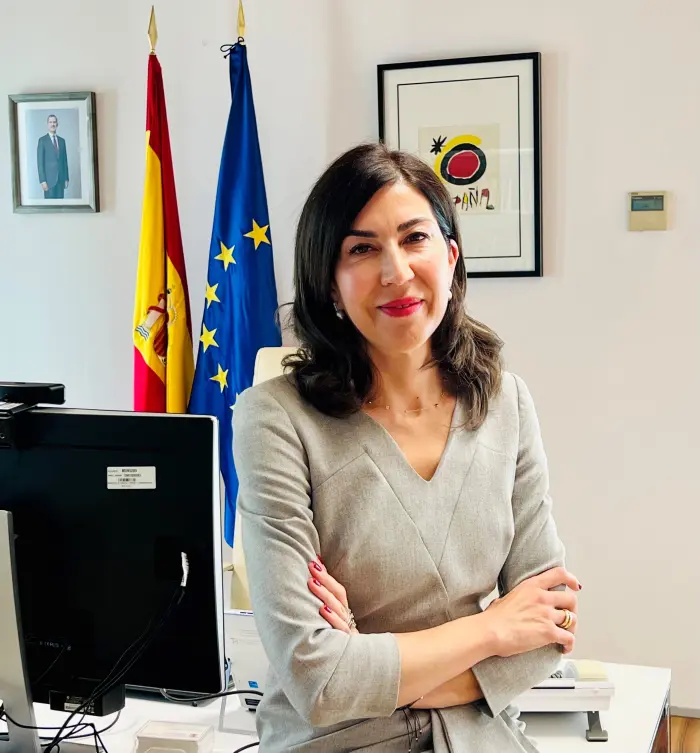Discussing the priorities of the Spanish Presidency of the EU with State Secretary Rosana Morillo

On 1 July, Spain took over the Presidency of the EU. What are the main priorities and strategies you have identified to support the recovery and growth of the European tourism and hospitality industry?
Spain has been one of the countries to contribute most to making tourism a priority in the European agenda and making its relevance match, for the first time, its economic and social weight.
On the topic of tourism, the Spanish Presidency of the European Council will be oriented towards consolidating the appropriate space for tourism within the politics of the Union. Specific action plans will promote the implementation of collaborative strategies for sustainable tourism in all of its forms: environmental, territorial, and social.
Specifically pushing forward the 2030 European Agenda of Tourism, the initiative related to the sharing of data between Short-Term Rental platforms and the push for the digitization projects of the tourist destinations and the companies in the sector.
How does the Spanish Presidency plan to advance the Regulation on data collection and sharing for Short-Term Rental (STR) accommodation services, considering the impending start of trialogue negotiations at the end of this year?
During our Presidency, we are going to work on the European regulation proposal for the collection and sharing of data for Short-Term Rental accommodation services.
Spain will continue to work to make the regulation another step for the European Union in the fight against fraud in the tourism sector.
How does the Spanish Presidency intend to support the European hospitality sector, particularly SMEs, in implementing sustainable practices?
Today I would like to express a message of optimism. Every crisis is born from an opportunity and the tourism sector has been capable of highlighting the importance of its greatest strengths in complex contexts like the ones we currently experience.
Innovative tourism works in Spain. We are ready to export this experience to the rest of Europe through generating more employment, more wealth, and reactivating and modernizing business models, freelancers, and large companies.
Spain’s ambition has been from the beginning responding to the necessity to modernize the European tourism sector through accelerating digitalization and the push towards the sector’s sustainability, but also through diversifying and de-seasonalizing touristic activity for it to reach more destinations and to enlarge its capacity to unite territory.
Tourist companies need to evolve new business models to relate and interact with tourists who are continuously more connected. Destinations are also aware of the potential of big data and this hyper connection to better the quality and experience of travellers.
The public-private collaboration is fundamental for the hospitality and accommodation sectors to be able to modernize and offer new experiences for tourists.
During the Spanish Presidency, we aim to approve more demanding regulations for tourist rental platforms. The Spanish Government aims to become a “pioneer” in the transposition of said regulations to the national legislation.
In light of the longstanding labour and skills shortages in European tourism and hospitality, compounded by the impact of COVID-19, what actions does the Spanish Presidency propose to address these challenges and foster the development of a skilled workforce in the industry?
Data shows that 2023 is turning out to be an extraordinary year for Spanish tourism, a result of politics that aim for quality without sacrificing quantity. We do not limit ourselves to counting tourists, instead (be that for the level of employment or of visitors) we seek excellence. And we are succeeding. The formation of the sector’s workers is fundamental for this. For this, Spain counts on the Professional Formation Plan for the tourism sector, with an objective of bettering the qualifications and competency of the workers, optimizing their employability, and contributing to the increase of productivity and competitiveness of the companies; in doing so favouring the reactivation of the sector.
The Training Plan is also an effective instrument for promoting the creation of quality employment and lasting vocation, an inalienable objective for the Government. The main measures are:
- Consolidating the relative measures of the employment created and started after the COVID-19 crisis.
- Maximizing the digitalisation process, reinforcing the free spaces of formative courses and resources that are already offered by the FUNDAE and SEPE on their websites.
- Anticipating the formative needs that will be necessary to undertake. The Public Labor Service has planned to publish a specific announcement for the tourism sector, this 2023, destined for the subvention of state-level training programs.
- Creation of the Professional Skills Card in Hospitality, which will collect information relative to the work experience and the training of the cardholder.
This initiative could also be implemented in the rest of the European countries. Human capital stands as essential to guarantee the future of tourism. Development, training, and professional qualification must be guaranteed since they are the base needed to offer a quality service.